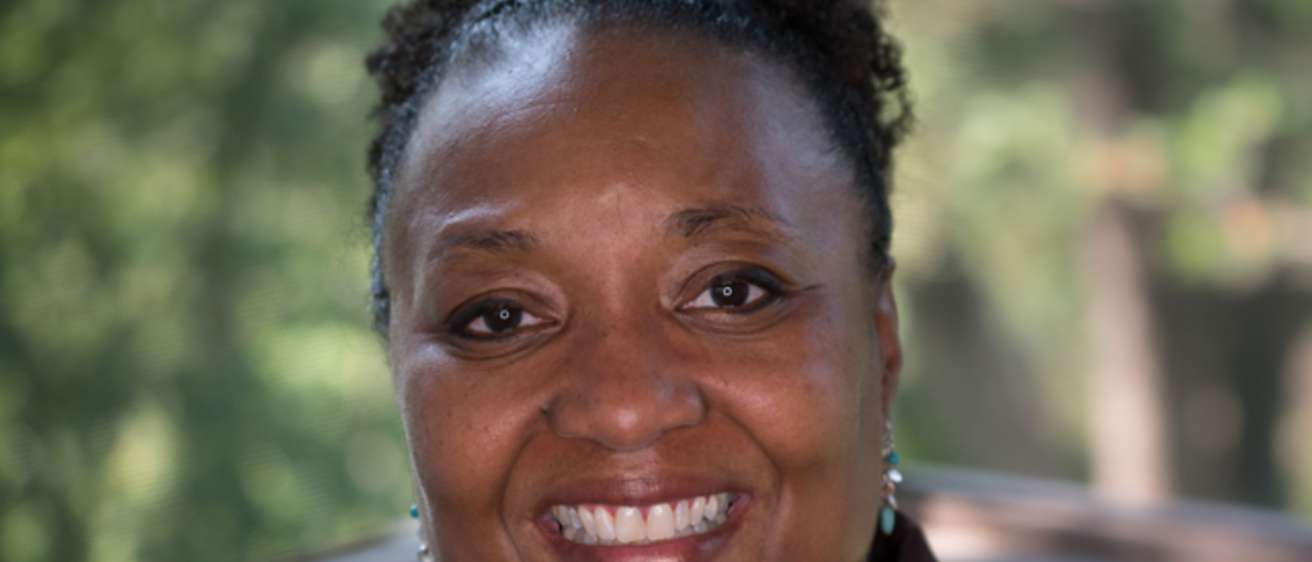Racism is an enduring problem. There is no finish line. Dialogue is difficult and necessary. Let missteps develop, not derail, dialogue.
These are underlying tenants of the Theory of Being, a theory developed by the Multicultural Initiatives (MCI) Research team and Sherry Watt, a professor in the Higher Education and Student Affairs program who has over 25 years of experience in designing and leading educational experiences to engage participants in dialogue that is meaningful, passionate, and self-awakening.
“Racism doesn’t just impact me as a Black woman. Our world, for human beings of all races, is on fire because racism effects every part of our society and we all need to figure out how we are going to address it. We have to figure out how to have difficult conversations about -- not just ‘what’ to do, but ‘how’ to go about it. I believe that if I can teach people how to build the stamina for staying in difficult dialogues across controversial divides then that is a way to contribute to transformative change in institutions,” says Watt.
The Theory of Being also serves as guiding principles for the College of Education’s new Anti-Racism Collaborative (ARC) which intends to inspire and normalize conversations that deconstruct how racism operates in the college, the Iowa City community, and broader society.
"As a college, we have certain values and the ARC is trying to help us live up to those values. We can’t just talk about them, we are going to have to use a process that is going to help us work our way through it,” says Watt. “We have lived hundreds of years in a racialized system where people of color are dehumanized and white people are hyper-humanized. This problematic dichotomy has built up bias, hatred and inequitable systems. There is no way for us to come up with some quick fix. We are going to have to be in this eternal conversation that helps us to constantly revisit and undo it. We are totally steeped in it and we are going to have to work our way out of it.”
The ARC invites all in the College of Education community to think and act together to implement practices that are intentionally anti-racist. These conversations critically examine how racism operates within the College including curriculum and teaching, admissions and recruitment, policy and practices.
“Almost every diversity effort focuses on some kind of outcome, but does not pay attention to processes that they use to invite people to a dialogue where they bring their best selves to solve a problem,” says Watt.
Watt says that by being more attentive and fully engaged in the process and in being with the work of anti-racism the college can move away from the sole focus on a completion of a superficial outcome, or an item on a checklist, and to a more coherent and intentional disruption of the systems and patterns that allow racist practices to exist and to function.
This summer’s racial reckoning at a time of pandemic made it very clear that many of our diversity efforts were more performative and at the surface level. We were making the kind of progress that aimed to increase the numbers of people of color in staff and faculty positions but then did little to change the unwelcoming environments. We were not making significant progress on transforming the mindset of people nor disrupting racist policy and practices that inform how the institution operated,” says Watt. “The Theory of Being helps people sit with these really complex issues longer and helps support people in figuring out how to move to actual and meaningful action. This approach focuses on developing the individual skills and the environmental conditions that will help you to be in authentic and difficult dialogue about how to move that list to actual practice in your day to day lives and within an organizational structure. If we are able to dialogue in ways that are humane and heated then it creates opportunity to work across divides to make real changes in our society that are substantial and long lasting. I think this way of engaging across difference is better for how we work with each other to change really ugly racist systems and counterintuitively it is creates the possibility for a kinder and more holistic way for all of us to live.”
Read more from the Annual Report 2020
